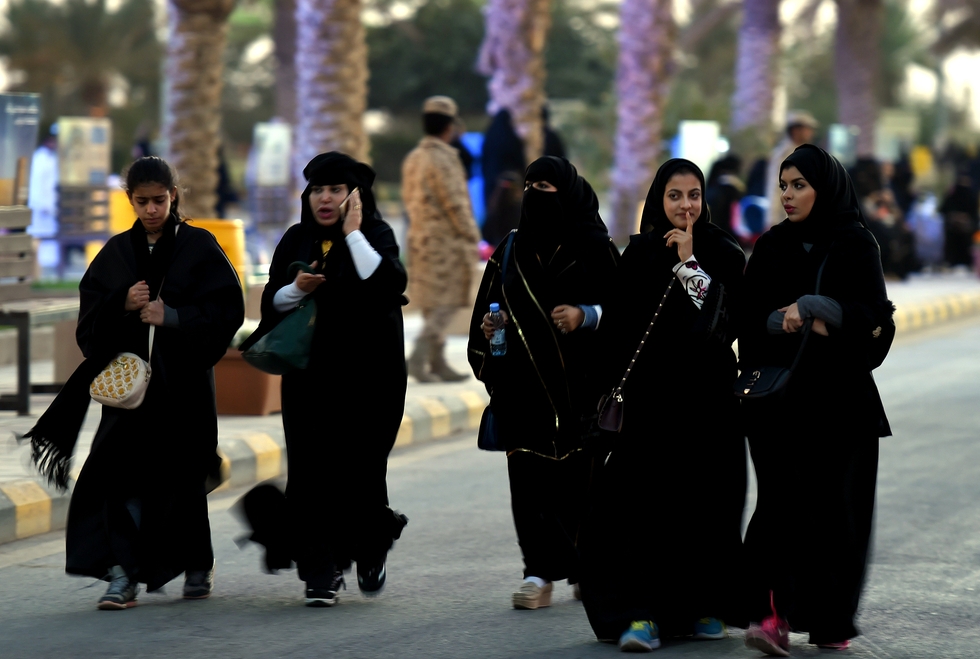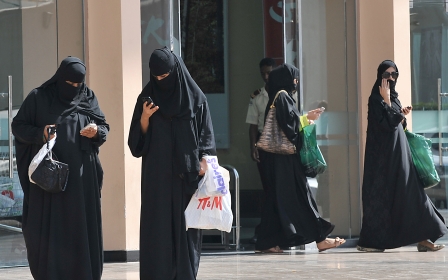Thousands of Saudi women sign petition to end male guardian system

Over 14,000 women in Saudi Arabia have signed a petition sent to King Salman on Monday calling for an end to the kingdom’s guardianship system, which requires women to have male permission for most of life’s tasks.
Saudi activist Hala Aldosari wrote the petition and said it gained 14,682 signatures after it was promoted on Twitter using an Arabic hashtag that translated as #IAmMyOwnGuardian.
Aldosari, who is a researcher in women’s health, wrote the petition after Human Rights Watch released a report earlier this year heavily criticising the male guardianship system.
The system requires women to have permission from a male guardian – who is either a husband or relative – to exit prison, leave the country, take up a job, receive medical treatment, or get married, among other things.
Aziz al-Yousef, who worked on the petition, said the petition “is not only a women’s issue” and that it was designed to put “pressure on normal men”.
“Women should be treated as a full citizen,” she told the Guardian.
“I decided to submit my name. I didn’t care about the repercussions. The demands were reasonable enough in my opinion,” one female Saudi Twitter supporter told MEE.
Aldosari said in the days running up to the petition being submitted, an estimated 2,500 women sent direct messages to the king via messaging application Telegram calling for the guardianship system to be abolished.
The Saudi government has twice before agreed to abolish the system – once in 2009 and the other in 2013 - both times after the United Nations Human Rights Council called for it to come to an end.
However, the system has continued to remain in place, although some reforms were instituted under the late King Abdullah, who passed laws allowing women to stand in municipal elections and be appointed to the royal advisory board.
Despite these reforms Saudi Arabia remains the only country in the world where women are not allowed to drive.
Some Saudi women have fled the country to escape the system. One woman, now in the US, told MEE: "In KSA (Kingdom of Saudi Arabia), I live in prison, me and my sisters with our mother for many years, we don’t go out, except rarely. We can’t drive and have no money. It’s really complicated and will take a long time to explain how we live there with this father and my family in general," she said.
The increasingly powerful Deputy Crown Prince Mohammed bin Salman – son of the current king – earlier this year outlined his Vision 2030 in which he called for women to play a bigger role in the labour market.
The vision of Mohammed bin Salman – who is second in line to the throne – would require fundamental changes to the guardianship system if it is implemented. Under his plan women would need to be able to take up jobs without being approved by their male guardian.
However Saudi's Grand Mufti Abdulaziz al-Sheikh has come out firmly against any change to guardianship. Earlier this month the grand mufti, who is the leading religious authority in the kingdom, rejecting suggestions that the Saudi guardianship system would ever be abolished.
When asked if he was concerned with the Twitter campaign, the sheikh said that the tweets and hashtags were “a crime against Islam” and posed an existential threat to Saudi society. “This is an evil call that goes against the Sharia and the instructions of the prophet,” he responded sternly.
The royal family is yet to respond to the petition but Hamid M Khan, deputy director of the Rule of Law Collaborative at the University of South Carolina, told the Guardian there is support at the top to end the system.
“Many in the royal family – not all but there is a significant number in the royal family – actually view this is as a bit exhausting,” he said.
“This notion of guardianship is not necessarily embedded in the Qur’an but it is based upon the jurist view that there are certain patriarchal understandings about the necessity of guarding a woman from these men,” said Khan.
Some religious scholars have supported ending the system, arguing that they are not divine rules but rather a government policy.
“They all declared that this is not religion, this is all government rules and it should be changed,” Yousef said.
This article is available in French on Middle East Eye French edition.
New MEE newsletter: Jerusalem Dispatch
Sign up to get the latest insights and analysis on Israel-Palestine, alongside Turkey Unpacked and other MEE newsletters
Middle East Eye delivers independent and unrivalled coverage and analysis of the Middle East, North Africa and beyond. To learn more about republishing this content and the associated fees, please fill out this form. More about MEE can be found here.




